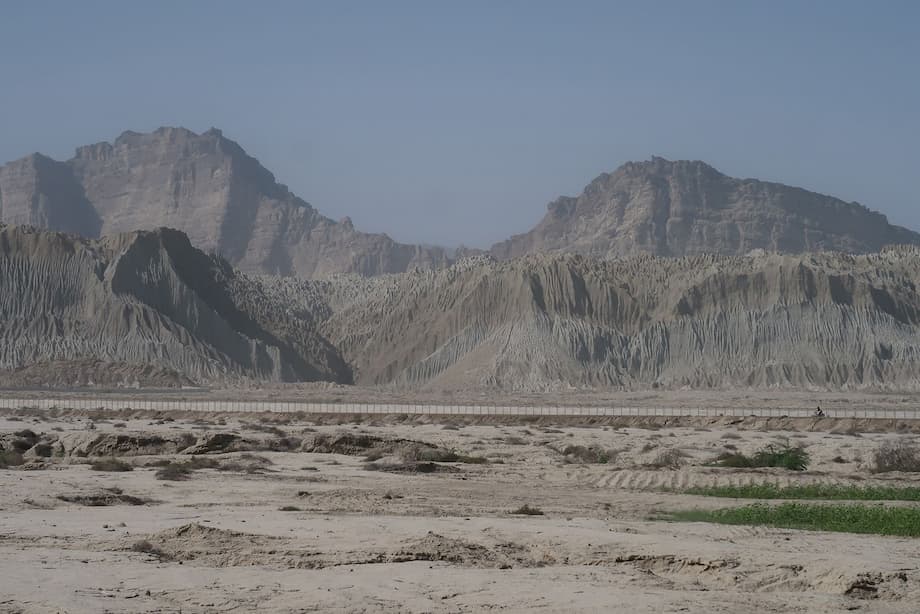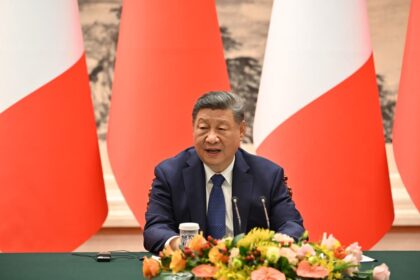Shocking Honor Killing in Balochistan: A Viral Video Ignites National Outrage
The brutal killing of a couple in Pakistan’s southwestern Balochistan province has once again thrust the country’s persistent crisis of honor killings into the global spotlight. The incident, captured in a harrowing video that quickly went viral on social media, has led to the arrest of at least 14 suspects—including a powerful tribal chief—and ignited widespread condemnation from activists, politicians, and ordinary citizens alike. The case has exposed the enduring grip of patriarchal customs, the power of tribal councils, and the ongoing struggle for women’s rights in Pakistan.
The victims, identified as Bano Bibi and Ehsan Ullah, were allegedly murdered on the orders of a local tribal elder after marrying without their families’ approval. The video, which surfaced in July 2025 but was filmed in early June, shows the couple being executed in a remote desert area near Quetta, the provincial capital. The footage is both chilling and emblematic of the violence that continues to be justified in the name of family honor across parts of South Asia.
What Happened in Balochistan?
According to police reports and multiple eyewitness accounts, the couple was forcibly taken to a deserted area by a group of armed men in SUVs and pickup trucks. In the video, Bano Bibi, her head covered with a shawl, is handed a copy of the Qur’an. Speaking in the local Brahvi language, she asks her assailant—her own brother—to walk seven steps with her before shooting her. She then insists, “You are only allowed to shoot me. Nothing more than that.” Moments later, she is shot at close range, remaining upright after the first two shots and collapsing only after the third. The video then shows further gunfire, with both victims left bloodied on the ground as the group looks on.
Police confirmed that Bano Bibi was shot seven times and Ehsan Ullah nine times, according to post-mortem examinations. The killings were reportedly ordered by Sardar Sher Baz Satakzai, a local tribal chief, after Bano’s brother complained that she had married without his consent. Both the tribal leader and the brother are among those arrested, though authorities continue to search for additional suspects.
Immediate Aftermath: Arrests and Official Response
The video’s circulation triggered a wave of outrage across Pakistan and beyond. Within days, Balochistan’s Chief Minister Sarfraz Bugti announced the arrest of more than a dozen suspects, including the tribal chief. Bugti condemned the killings as “intolerable” and “a blatant violation of social values and human dignity.” He vowed that all those involved would be prosecuted to the fullest extent of the law.
Balochistan Chief Minister Sarfraz Bugti stated, “No one has a right, no matter what, to kill someone in such a painful and disgusting way, and then video shoot it. It is a crime. It is a murder.”
Prime Minister Shehbaz Sharif also weighed in, ordering a thorough investigation and emphasizing that “no one is above the law and all suspects must be brought to justice.” The provincial government took the unusual step of initiating the investigation itself, as neither victim’s family came forward to file a complaint—a common occurrence in honor killing cases, where families often support or condone the violence.
Understanding Honor Killings in Pakistan
Honor killings—murders committed to “restore” family or community honor after perceived transgressions, often related to marriage or relationships—are tragically common in Pakistan. While the practice is not unique to the country, Pakistan consistently ranks among the nations with the highest reported rates of such crimes. According to the Human Rights Commission of Pakistan (HRCP), at least 405 honor killings were reported in 2024 alone, though activists believe the true number is much higher due to chronic underreporting.
Most victims are women, and the perpetrators are often close relatives—brothers, fathers, or husbands—acting with the tacit or explicit approval of tribal councils known as jirgas. These councils, which operate outside the formal legal system, wield significant power in rural areas and frequently issue extrajudicial verdicts, including death sentences for those accused of violating traditional norms.
Why Do Honor Killings Persist?
The roots of honor killings in Pakistan are deeply embedded in patriarchal traditions that equate family honor with women’s behavior. In many communities, a woman’s decision to marry by choice, seek a divorce, or even interact with men outside her family can be seen as a grave affront to family dignity. The resulting violence is often justified as a means of restoring lost honor.
Several factors perpetuate this cycle of violence:
- Patriarchal Norms: Social structures place the burden of family honor on women, making them vulnerable to extreme punishment for perceived transgressions.
- Tribal and Feudal Power: Tribal chiefs and feudal lords maintain control over their communities by enforcing traditional codes, often with the state’s tacit support.
- Weak Law Enforcement: Police and courts are often reluctant to intervene in what are seen as “family matters,” and perpetrators frequently escape punishment due to legal loopholes or lack of evidence.
- Legal Gaps: Until 2016, Pakistani law allowed killers to be pardoned by the victim’s family—a provision that effectively enabled honor killings, since the family and perpetrator were often the same. Although reforms have since made honor killings punishable by life imprisonment, enforcement remains inconsistent.
Harris Khalique, secretary general of the HRCP, explained,
“These norms are guarded and practices perpetuated by the feudal and tribal chieftains to maintain their control over both their people and resources. Regrettably, in many cases, the state not only protects these local chieftains but even facilitates their presence in Pakistani legislatures. This patronage must stop and anyone responsible for such heinous crimes must be brought to the book.”
The Power of the Viral Video: Public Outcry and Activism
The Balochistan case might have faded into obscurity—like so many others—if not for the shocking video that surfaced online. The footage, widely shared on social media, galvanized public opinion and forced authorities to act. Women’s rights activists, politicians, and ordinary citizens took to the streets and online platforms to demand justice and an end to the impunity that has long shielded perpetrators of honor violence.
Sammi Deen Baloch, a prominent rights activist, described the killing as part of a broader pattern of violence against women in Balochistan. She argued that the government would not have acted without the viral video, and that Baloch women remain trapped between tribal patriarchy and state repression.
“The killing of women has become routine in the province, with women murdered for love, disappeared for protest, and buried under tribal authority and state-backed silence,” said Sammi Deen Baloch. “The state’s refusal to democratise Balochistan is deliberate, keeping the region controlled and its women expendable.”
Other activists echoed these concerns, calling for the abolition of jirgas and the enforcement of existing laws. Zahra Shah, a women’s rights advocate in Karachi, called the video “heart-wrenching” and urged women to keep fighting for their rights, insisting that the cruelty of honor killings must stop.
Legal and Political Challenges: Can Pakistan End Honor Killings?
Despite legal reforms and high-profile prosecutions, honor killings remain a stubborn reality in Pakistan. The 2016 legislative changes, prompted by the murder of social media star Qandeel Baloch, closed the legal loophole that allowed families to pardon killers. Now, honor killings are supposed to carry a mandatory life sentence. Yet, enforcement is patchy, and convictions are rare. In Balochistan, only one conviction for honor killing was recorded in 2024, despite dozens of reported cases.
Tribal councils continue to operate parallel justice systems, especially in rural and remote regions. Their influence is bolstered by the political power of tribal chiefs, some of whom serve as local legislators. This entrenched authority makes it difficult for police and courts to intervene, and victims’ families are often pressured into silence or complicity.
Amnesty International and other human rights organizations have repeatedly called on the Pakistani government to dismantle these extralegal structures and ensure that all citizens are protected by the rule of law. In a 2023 statement, Amnesty warned that the government’s failure to curb the power of jirgas “perpetuates patriarchal violence with impunity.”
Broader Social Impact and the Role of Media
The Balochistan case has reignited debate about the role of media and technology in exposing abuses that might otherwise remain hidden. The viral video not only forced authorities to act but also sparked a national conversation about the status of women, the power of tradition, and the need for systemic reform.
Pakistan’s Defense Minister Khawaja Asif shared the video on social media, urging citizens to stand up against the “system of oppression” rather than raising weapons against the state. The incident has also drawn international attention, with global media outlets highlighting the persistence of honor killings in Pakistan and the urgent need for change.
Victims, Justice, and the Path Forward
The story of Bano Bibi and Ehsan Ullah is tragically familiar in Pakistan, where hundreds of women—and some men—are killed each year for defying social norms. Their deaths have become a rallying point for activists and reformers, but also a stark reminder of the challenges that remain.
As the investigation continues and more suspects are sought, the case will test the resolve of Pakistani authorities to deliver justice. It will also challenge society to confront the cultural and institutional forces that enable such violence. The outcome will have implications far beyond Balochistan, shaping the future of women’s rights and the rule of law across the country.
In Summary
- A couple in Balochistan, Pakistan, was brutally murdered in an honor killing after marrying without family approval; the crime was captured in a viral video.
- At least 14 suspects, including a tribal chief and the woman’s brother, have been arrested; authorities continue to search for additional suspects.
- The incident has sparked national outrage, with activists and politicians demanding justice and an end to honor killings.
- Honor killings remain common in Pakistan, driven by patriarchal norms, tribal power, and weak law enforcement; most victims are women.
- Legal reforms have been enacted, but enforcement is inconsistent and tribal councils continue to wield significant influence.
- The viral video forced authorities to act and reignited debate about women’s rights, the power of tradition, and the need for systemic reform in Pakistan.












